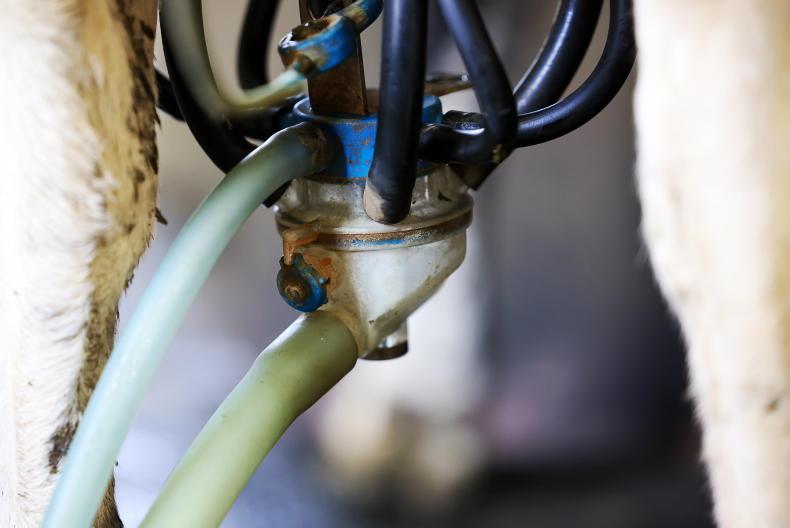In December 2018, the co-op Ornua announced it would reform its governance structures. This followed a boardroom row when Glanbia announced the launch of its Truly Grass-Fed product – thereby head-on competing with Ornua’s Kerrygold product.
Tensions were so high that the November 2018 board meeting was cancelled.
Glanbia owns 25% of Ornua. It has two of its representatives as non-executive directors on Ornua’s board, Glanbia chair Martin Keane and Glanbia executive Jim Bergin. In corporate governance terms, Keane and Bergin are representative directors.
Such directors are not independent. They suffer from conflicts of interests, between the interests of the organisation of which they are directors, Ornua, and the organisation they represent, Glanbia. Where the two organisations are competitors, as is the case of Ornua and Glanbia, the conflicts of interest become acute.
Corporate governance best practice
In its annual report, the Ornua board expresses commitment to adopting corporate governance best practice by implementing appropriate corporate governance arrangements. These arrangements reflect Ornua’s global scale, the nature of its business and its co-operative ethos.
The issue of conflicts of interest is one of the greatest challenges in corporate governance. Ornua maintains a register of directors’ interests. Directors have to declare any conflicts of interests on appointment and again periodically during their term of office if an issue or event requires declaration of interest.
Such mechanisms may work when the conflict is occasional. However, in my opinion, they can rarely operate successfully where the conflict is systematic and pervasive, as is the case with representative directors. Like many corporate governance mechanisms, conflict of interest policies may operate in practice in a symbolic, ritualistic way rather than substantive manner (called the “performativity” – the great dance – of corporate governance).
Take, for example, the following anecdote I heard: an item arises at a board meeting, and the chair says “Sean, should you step out of the meeting?” At which point, the whole board burst out laughing!
Clearly Ornua’s conflicts of interest processes did not work, given the board dispute leading to cancellation of the November 2018 board meeting.
Following a review of its procedures to manage conflict of interest at board level, the board approved in 2019 the Ornua Governance Framework, which seeks to address the management of such conflict of interest issues within Ornua as well as competition law compliance.
Ornua’s corporate governance
The corporate governance reforms proposed are for current board members to move off Ornua’s board of directors and join an advisory council instead. Ornua’s current board of directors comprises 15 non-executive directors. In modern governance terms, 15 is too large. An ideal board size is around 11 or fewer board members. All but one of the directors represent a supplier members or farming organisations. Thus, the current board is not independent.
The new board will comprise of 16 people in total, eight from co-ops trading with Ornua and eight others. The eight others are: three independent three independent non-executive directors; a representative director from the Irish Farmers’ Association (IFA), Irish Creamery Milk Suppliers’ Association (ICMSA) and the Irish Cooperative Organisation Society (ICOS); and two Ornua executives.
Boards should include an appropriate combination of executive and non-executive (and, in particular, independent non-executive) directors.
Ornua’s proposed board structure does not meet corporate governance best practice standards, which require a majority of the board to be independent non-executive directors.
The addition of two executives to the board improves corporate governance standards from a best practice perspective, as one or two executive directors should share the responsibilities of governance with the non-executive directors.
A statement earlier this month from the co-op says: “Ornua will now be seeking nominations from member suppliers of non-conflicted directors and the selection process for the independent non-executive directors is also underway.”
This statement raises questions.
First, is Ornua’s nomination and selection process at arm’s length? Under corporate governance best practice, a board would establish a nomination committee comprising a majority of independent non-executive directors to select new directors. This is not practical, given Ornua’s current governance structure, which lacks independence. The Ornua board has chosen to recruit new directors through an internal process. However, there are alternative ways of recruiting independent non-executive directors on an arm’s length basis. For example, could Ornua not advertise these positions? Could Ornua use a recruitment agency to recruit independent non-executive directors?
Secondly, how will Ornua’s approach to recruiting new directors ensure its board has an appropriate skills mix? Boards should have an appropriate combination of skills, experience and knowledge. They achieve this by first preparing a profile of the skills needs of the board, and only then embarking on the recruitment process. Boards should have a diverse range of directors.
Thirdly, how will Ornua’s governance reforms resolve the conflict of interest problem? If nominations for the three new independent non-executive directors are coming from member suppliers, how can this resolve the conflict of interest problem? Will the new non-executive directors be representing nominating member suppliers? As such, will they be representative rather than independent non-executive directors?
How can nominations from member suppliers ensure the recruitment of “non-conflicted directors”? Does the new board structure replace one conflict of interest problem with another conflict of interest problem?
Maybe the process requires an additional step? Should a nomination process be followed by a vetting process to ensure the board has the right skills mix and the right type of experienced and independent people joining the board? Establishing structures that minimise conflicts of interest will lead to better corporate governance. Seeing who the new directors are will give a strong signal of whether Ornua is serious about reforming its governance standards, or whether it is more of the same.
Niamh Brennan is Michael MacCormac Professor of Management, University College Dublin, and Academic Director, UCD Centre for Corporate Governance.









SHARING OPTIONS